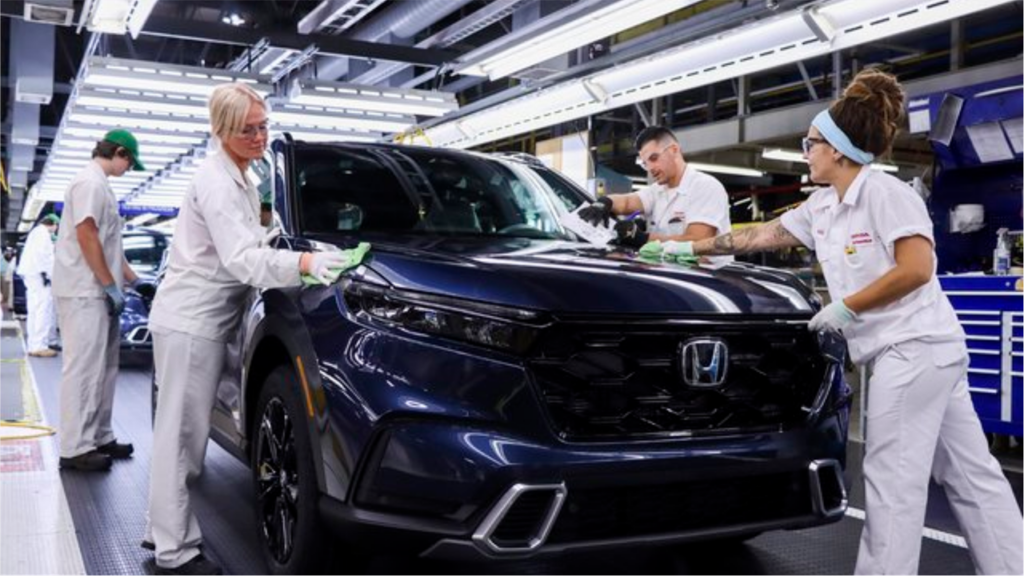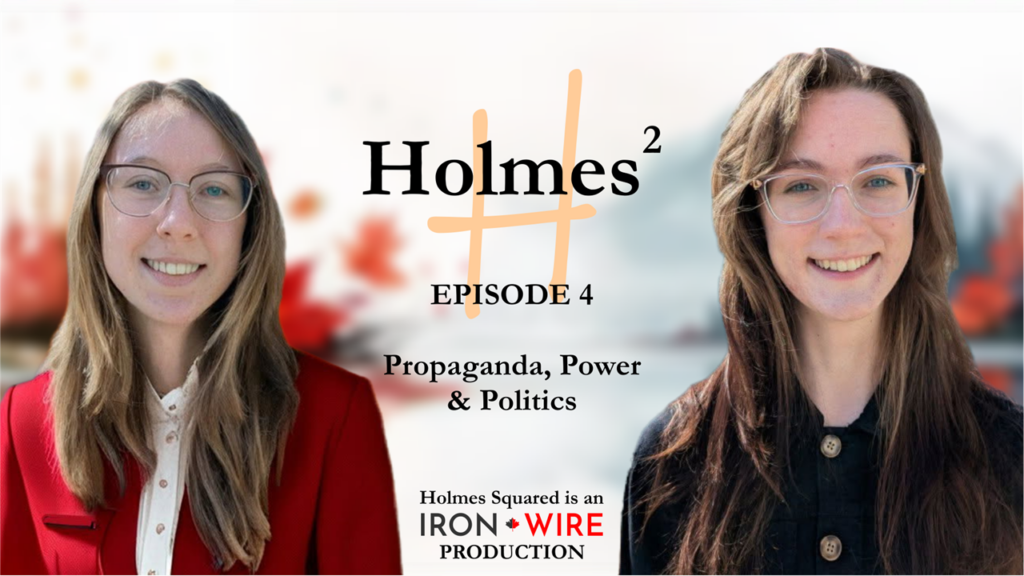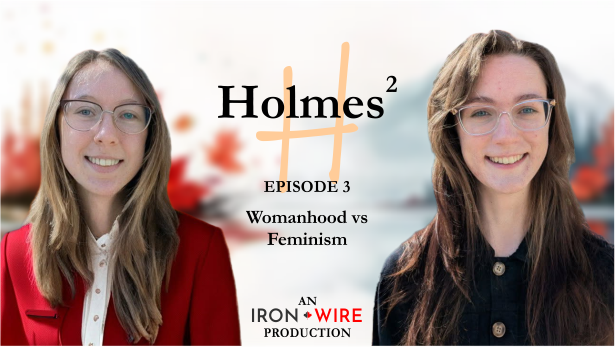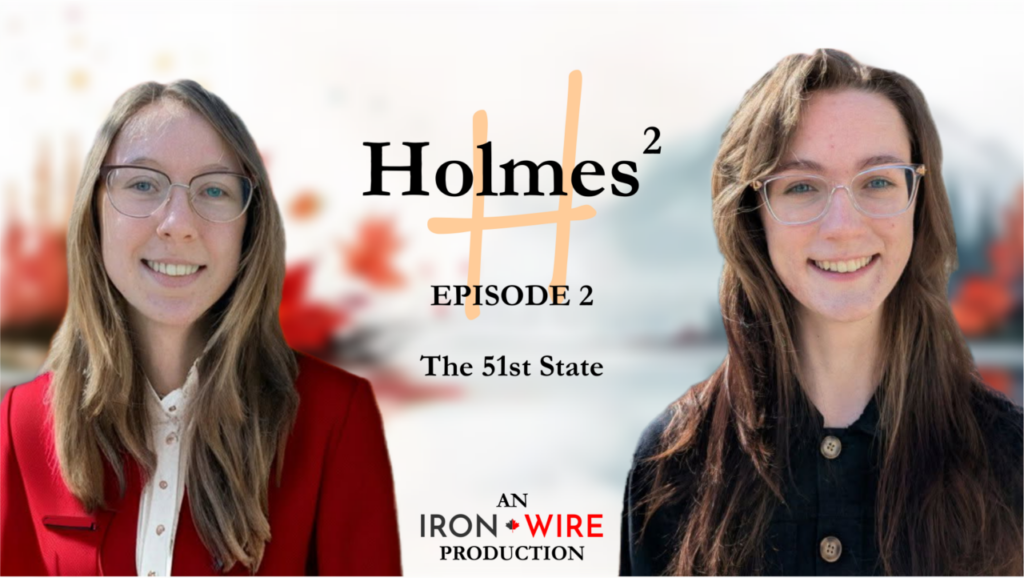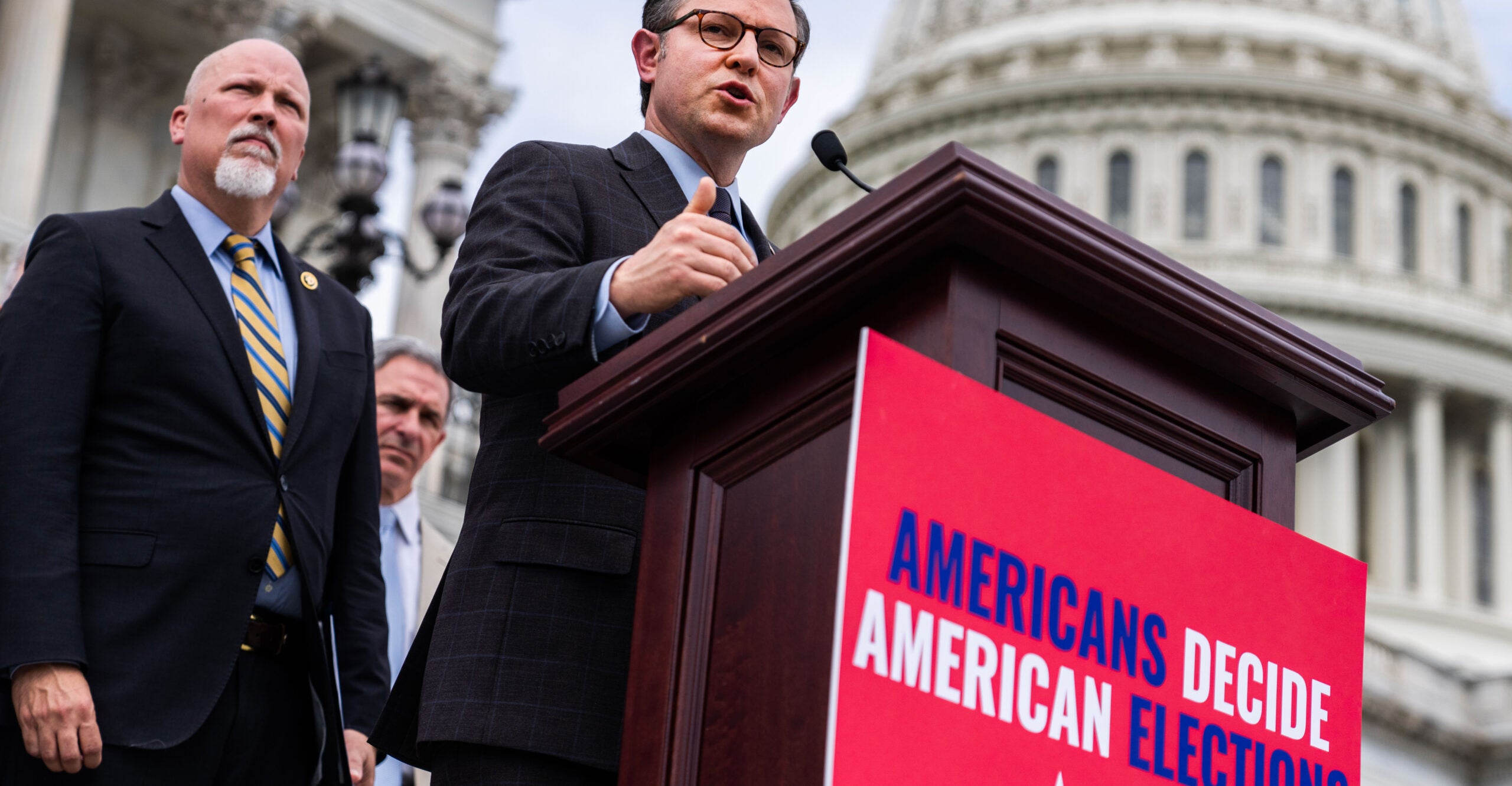British Steel live: Business secretary tells emergency debate nationalisation may be ‘likely option’
Scunthorpe locals come together ahead of marchpublished at 13:45 British Summer Time
 Kevin Shoesmith
Kevin Shoesmith
Reporting from Scunthorpe
 Image source, BBC/Kevin Shoesmith
Image source, BBC/Kevin Shoesmith
I’ve just spoken to a fifth generation steelworker, Kieran, 30, outside The Berkeley pub in Scunthorpe, where people are gathering ahead of a march calling for the steel plant to stay open.
He tells me: “I’ve worked at the steelworks since I left school. I couldn’t imagine working anywhere else.
“I had to come down here. We need to show the country how much our steelworks mean to us.”
Scunthorpe plant should never have been sold to China, senior Tories saypublished at 13:39 British Summer Time
 Jennifer McKiernan
Jennifer McKiernan
Political reporter
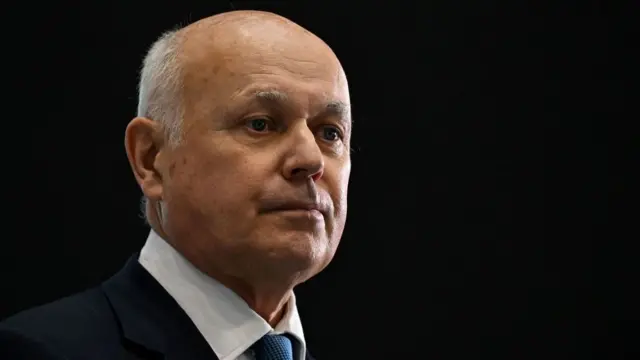 Image source, Getty Images
Image source, Getty Images
Iain Duncan Smith is one of the loudest voices warning of the security threat posed by China
Iain Duncan Smith, a former Conservative leader, says his party should “never” have sold the Scunthorpe steel plant to a Chinese company.
Duncan Smith has been sanctioned by the Chinese Communist Party and has been one of the loudest voices warning of the security threat posed by China for several years.
Labelling the sale to Jingye a “mistake” by his colleagues, he railed against treating the company as an independent entity, rather than an arm of the Chinese government, and highlighted how Chinese overproduction of steel is “a desperate problem for us”.
“It’s no surprise that a Chinese company, Jingye, is involved in this because in pushing to close down the plant in Scunthorpe they know we will have to buy slab steel from them,” he said.
He was backed by another Conservative MP, Sir Edward Leigh, who has long been warning that China is the UK’s biggest threat.
Sir Edward said: “Colleagues, we must never again allow a strategic asset like this to fall into the hands ofthe Chinese or Russians.”
Why is the Scunthorpe steel plant important for British security?published at 13:12 British Summer Time
 Jack Fenwick
Jack Fenwick
Political reporter
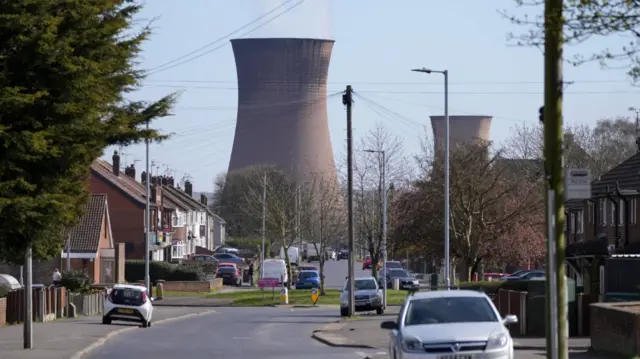 Image source, Reuters
Image source, Reuters
Let’s delve a bit deeper into why the government thinks thesteel plant at Scunthorpe is so crucial for national security.
The two remaining blast furnaces there – named after EnglishQueens ‘Anne’ and ‘Bess’ – are the last ones in the UK capable of makingvirgin steel – which is made from iron ore rather than recycled steel.
In an unstable world, ministers believe it’s crucial thatthe country maintains the ability to make its own steel.
After that, it really comes down to two of the PrimeMinister’s biggest priorities in office.
The first is defence. We know the government wants to spend more in this area –and the steel made in Scunthorpe is crucial for defence manufacturing.
The second is economic growth. Keir Starmer wants to boost the nation’s finances byinvesting in big infrastructure projects. Again, the steel needed for those projects is largely madein Scunthorpe.
In the Prime Minister’s own words, all of this “meanswe need more steel, not less”. And that’s a big reason why the government has chosen to acttoday.
Peers convene to discuss government’s proposalpublished at 12:59 British Summer Time
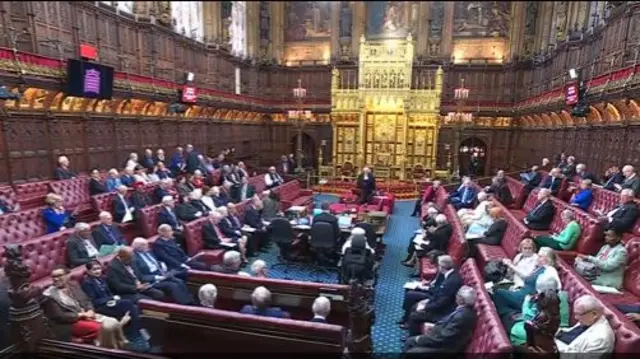 Image source, Parliament TV
Image source, Parliament TV
As the debate in the House of Commons continues, peers have also convened in the House of Lords to discuss the government’s proposal for the future of British Steel’s Scunthorpe site.
Peers are currently considering the motion but they won’t being debating it until it has been passed by MPs.
The bill will move to the Lords once the Commons debate has concluded.
Whatever happens next, taxpayers could face expensive billpublished at 12:53 British Summer Time
Joe Pike
Political & Investigations Correspondent
Business Secretary Jonathan Reynolds seems to be the big winner from today’s draft legislation.
He will get the power to direct the board and the staffof British Steel. Interestingly the draft legislation also says he will be ableto enter the company’s premises “using force if necessary” alongsideanyone he chooses.
Allies of Reynolds argue it Is too early to work out the nextsteps for saving the company. “We need to get through today, get the rawmaterials on site and get beyond this crisis point”, an individual in governmenttold me.
“This is just a sticking plaster on a gaping wound”,argued Tory MP Edward Leigh, who represents the neighbouring constituencyto Scunthorpe.
Whatever happens next, it Is likely to be expensive for the UKtaxpayer. The high cost of energy for the industry remains a major concern.
Onesenior union figure has told me this issue must be addressed in RachelReeves’s spending review.
Lib Dems say Reynolds being given unconstrained powerspublished at 12:43 British Summer Time
 Jennifer McKiernan
Jennifer McKiernan
Political reporter
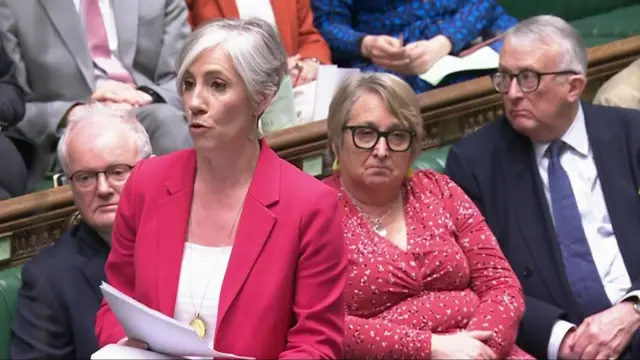 Image source, PA Media
Image source, PA Media
Liberal Democrat deputy leader Daisy Cooper says she welcomes the sense of urgency over the recall of parliament due to the importance of the steel industry.
However, she warns Reynolds is giving himself huge and unconstrained powers that could set a very dangerous precedent, and these should be removed as soon as possible.
Reynolds intervenes to agree and give a commitment to doing so.
Sweeping powers and strong wordspublished at 12:32 British Summer Time
 Jack Fenwick
Jack Fenwick
Political reporter
These are sweeping powers that the business secretary isasking for.
Jonathan Reynolds himself likened them to the CivilContingencies Act – that’s the bit of legislation that allows the government torespond to national emergences such as war.
Reynolds told MPs he doesn’t want to keep the powers for aminute longer than necessary – and I suspect that’s a point that opposition MPswill press him on throughout the day.
He’s also made clear quite how frustrated the government iswith the Chinese owners of British Steel Jingye.
Government figures have been talking privately all weekabout how relations are strained.
But the language used today by the business secretary – inthe very public setting of the House of Commons – was still striking.
Jonathan Reynolds said that Jingye intended to refuse neworders of materials, refuse to keep the blast furnaces running and wanted toclose down primary steelmaking in Britain. Jingye previously rejected this claim.
And asked how much taxpayers’ money might be spent if thegovernment does proceed with a full nationalisation, he was keen to stress thatthe market value for the company is effectively zero.
The government needs to act, say Scunthorpe United fanspublished at 12:21 British Summer Time
Kevin Shoesmith
Reporting from Scunthorpe
 Image source, BBC/Kevin Shoesmith
Image source, BBC/Kevin Shoesmith
Almost 200 miles north of Westminster, people in Scunthorpe are keeping a close eye on the government’s statements.
Friends Jamie Morgan, 35, Ryan Middleton, 24, and Jack Evans, 25, tell the BBC what the steel plant means to them as the debate in the Commons continues.
“The works are massively important to this town,” says Jamie. Jack adds: “With the works, this town will go under. The government needs to act.”
Ryan, a recruitment consultant, warns: “There are opportunities in Scunthorpe but not enough for 2,700, which is what would be needed if the works close. I’m certain of that.”
Later today Scunthorpe United fans will march to the club’s Glanford Park stadium in a show of solidarity for the town’s steelworkers.
Government has no industrial strategy – Griffithpublished at 12:13 British Summer Time
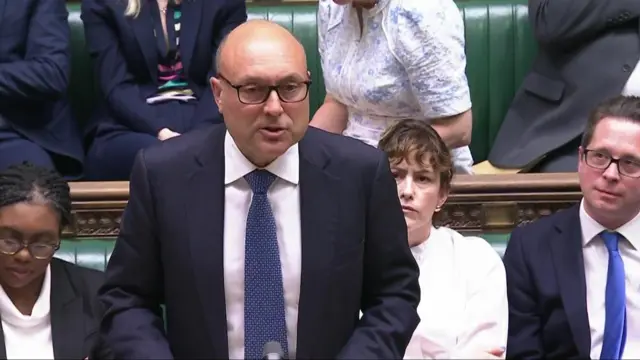 Image source, PA Media
Image source, PA Media
Andrew Griffith, the shadow business secretary, is delivering the response for the Conservative party and quickly takes aim at the government, saying that “failure to prepare is preparing to fail”.
He argues ministers failed to prepare adequately to address the Scunthorpe issue and says they’re currently pursuing what he describes as a “botched nationalisation plan”.
Griffith claims “there is no industrial strategy” under this government and warns glass, chemicals, cars and concrete are other industries at risk from high energy costs.
Griffith says the government is being “disrespectful” by asking MPs to provide them with a “blank cheque” to save British Steel – arguing that the debate could’ve been held when Parliament wasn’t in recess.
Beneath broad agreement is raw, angry politicspublished at 11:59 British Summer Time
 Chris Mason
Chris Mason
Political editor
Hello from the Press Gallery of the House of Commons.
This plan will become law today, and there is widespreadagreement among MPs across the House that the steel plant at Scunthorpe shouldbe kept open.
But beneath that broad agreement is raw, angry politics. This is sharpened because the Conservative leader KemiBadenoch who is, herself, a former business secretary.
Exchanges between the Tory leader and her Labour successorJonathan Reynolds had a barb and personal anger to them.
Reynolds argued Badenoch didn’t have a plan to save theScunthorpe plant. She argued the deal was being negotiated and he has caved totrades union demands in what he is setting out today.
I expect, by the way, that the Conservatives will abstainlater. They don’t want to endorse the government’s plan, butequally don’t want to publicly oppose a plan that will keep the plant open,when the alternative is that it shuts down.
Government faces questions on fate of other steel plant, Port Talbotpublished at 11:55 British Summer Time
 Jack Fenwick
Jack Fenwick
Political reporter
One question that’s already being asked of the business secretary is why he’s considering nationalising the steelworks at Scunthorpe, when the same offer wasn’t on the table for Port Talbot.
Traditional steelmaking ended in Port Talbot last September and almost 3,000 jobs were cut, when the owners struck a deal with the government to transition to a greener process.
The original government offers to Port Talbot and Scunthorpe were actually very similar. Both were offered £500m to help move to a system that uses electric arc furnaces. Port Talbot’s Indian owners Tata accepted that offer. Scunthorpe’s Chinese owners Jingye didn’t.
Jonathan Reynolds said that deal means that Port Talbot’s future is more secure. But the Westminster leader of Plaid Cymru, Liz Savile-Roberts, calls on the government to change today’s emergency legislation to take control of what’s left of the steelworks there too.
For years, Scunthorpe and Port Talbot have produced very different types of steel. Many in the steel industry would say both are crucial for national security.
But I understand some in government believe the type of steel made in specifically Scunthorpe – which is used in construction, rail and defence projects – is simply too important to let go.
Emergency debate prompts questions on fate of Scottish oil refinerypublished at 11:49 British Summer Time
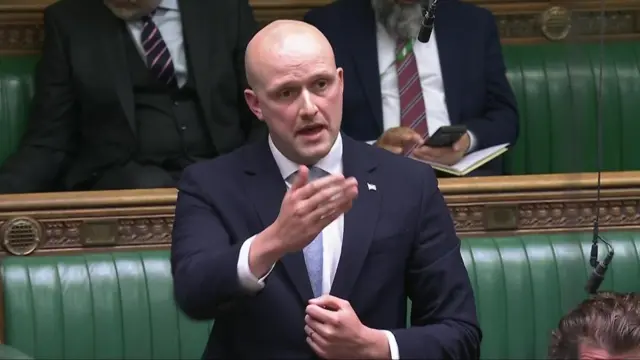 Image source, PA Media
Image source, PA Media
The SNP’s Westminster leader Stephen Flynn asks whether Scotland’s Grangemouth oil refinery can be brought under the control of government.
Reynolds tells him the situation is “not comparable” because Grangemouth is not the only refinery remaining but one of three, and the behaviour of the owners is also not comparable.
He says Labour has “fought” to save industrial assets across the UK.
- Read more on why the emergency debate on the Scunthorpe steel plant is raising questions for some Scottish MPs on the fate of the Grangemouth oil refinery
Liberal Democrat leader makes swipe at Farage for campaigning for Trumppublished at 11:45 British Summer Time
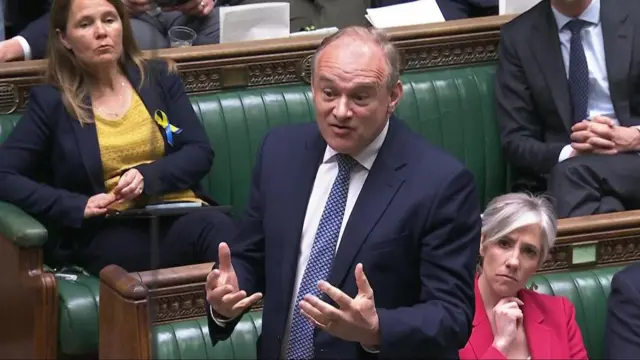 Image source, PA Media
Image source, PA Media
Leader of the Liberal Democrats Ed Davey asks Reynolds if he agrees that anyone who campaigned for Trump has behaved “shamefully unpatriotically” and should apologise to British steel workers.
- For context: Davey has called on Reform UK leader Nigel Farage to apologise to steelworkers for “cheering on Trump” who, he says, “has put these jobs at risk”
Reynold says that issues around British steel doesn’t just revolve around US tariffs, but says it’s in the interest of both countries to remove those levies.
As a reminder, US President Donald Trump announced a 25% tariff on steel imports to the US in February.
Nationalisation may be likely option, business secretary sayspublished at 11:42 British Summer Time
Breaking
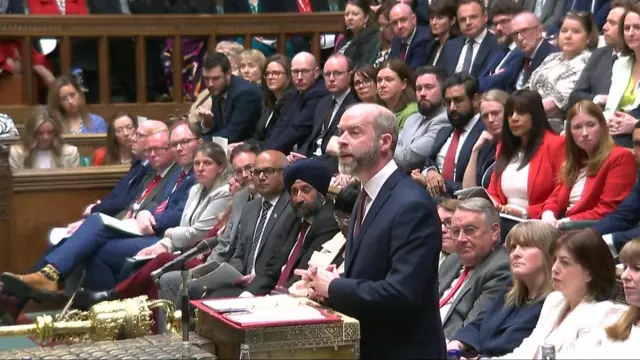 Image source, PA Media
Image source, PA Media
The debate in the House of Commons is still ongoing.
Business Secretary Jonathan Reynolds says he does not want the powers conferred to him in the bill “longer than necessary”.
Reform UK MP Richard Tice intervenes to say now is the time to nationalise the steel company.
Reynolds responds to say the emergency legislation is “not a magic wand” and the UK state cannot fund the long-term transformation of British steel.
The business secretary, however, notes that nationalisation remains “the likely option” in the long term.
However, he adds, if this legislation is not passed, other outcomes cannot be considered.

If you look closely at the bill, one man’s power is about to increasepublished at 11:33 British Summer Time
 Chris Mason
Chris Mason
Political editor
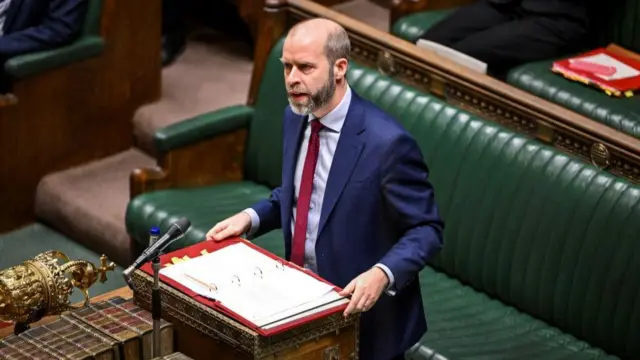 Image source, Reuters
Image source, Reuters
This bill is all about giving the government the power to run British Steel. That is what the aim is – in a single sentence.
But take a look at what the legislation actually says – and the power it confers on the Business Secretary, Jonathan Reynolds.
They can enter the plant with force if necessary and any attempt by the company to shut it down would be overturned by the government.
It is something of an insight into how relationships between the government and the parent company of British Steel have broken down that they have concluded this is necessary.
Steel bill a ‘necessary step’, business secretary sayspublished at 11:27 British Summer Time
Reynolds describes the legislation before MPs today as a “proportionate and necessary step”.
He says it will allow the government to “take control” of British Steel’s blast furnaces, maintain steel production and protect the site’s workforce.
The bill does not transfer ownership of the site to the government, Reynolds says.
He adds, given the exceptional nature of recalling parliament, he thought it better to limit the powers of the bill rather than introducing “more complex matters” of property rights and public ownership at this time.
Business secretary defends government negotiations with steel ownerpublished at 11:24 British Summer Time
 Jennifer McKiernan
Jennifer McKiernan
Political reporter
Business Secretary Jonathan Reynolds defends the government’s negotiations with Jingye, saying the UK was acting in good faith but it became clear the Chinese company was not.
He explains that it became clear Jingye’s intention was to refuse to order more raw material and refuse to pay for existing orders, resulting in closure. Jingye previously rejected this claim.
The British government offered to buy raw materials to ensure no losses for the company, but an excessive counter-offer was made, he says, for the government to pay Jingye hundreds of millions without any conditions.
MPs meeting under ‘exceptional circumstances’, business secretary sayspublished at 11:18 British Summer Time
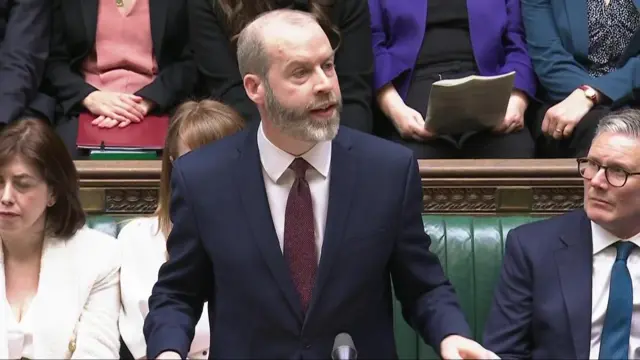 Image source, House of Commons
Image source, House of Commons
Business and Trade Secretary Jonathan Reynolds is now speaking and starts by saying MPs are meeting under “exceptional circumstances, to take exceptional action, in what are exceptional times”.
The decision to recall Parliament “wasn’t taken lightly”, he says, as he thanks his colleagues for coming back on a Saturday.
Government has made a ‘total pig’s breakfast’ of steel plant situation – Conservativespublished at 11:14 British Summer Time
Conservative MP Alex Burghart is now speaking in the Commons and says the government has “made a total pig’s breakfast” on the situation with British Steel.
He says that those paying attention knew this was coming.
The Commons is incredibly rowdy at this point, and the Speaker ushers the House to be quiet.
Burghart adds the government is making “bad deals for Britain”.
Labour benches are full for debatepublished at 11:11 British Summer Time
 Chris Mason
Chris Mason
Political editor
Hello from the Press Gallery of the House ofCommons.
Pretty thinly populated journalistically, but down in the chamber theLabour benches are full, the Conservative benches modestly filled but notentirely so, and it is similar for the other parties


